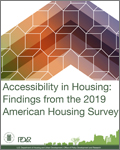Baltimore City Begins Tax Sale Exemption Program to Keep Residents in Their Homes
This program helps homeowners avoid tax sale for unpaid City bills.
The deadline to apply for this program is Friday, April 15.
Learn more at https://dhcd.baltimorecity.gov/hho/tax-sale-prevention.
Learn more or register for a free homeowner clinic at http://www.myhomemydeed.org, or call 443-451-4066.
What is it?
The Tax Sale Exemption Program is an annual city program managed by the Departments of Finance and Housing and Community Development. Successful applicants have their properties removed from tax sale in the year they apply. However, this program does not forgive unpaid bills, and if the bills are not paid, they may qualify the property for tax sale the next year.
The city sets aside $2 million dollars annually. From that starting balance, the amount of each applicant’s liens is deducted from the balance remaining. Once the $2 million dollars is exhausted, the program closes.
Eligibility
Homeowners who receive Final Bill and Legal Notices (FBLN) in February are eligible to participate in this program if they meet following criteria:
(1) The assessed value of their home is $250,000 or less (look it up here—SDAT: Real Property Search (maryland.gov)), and
(2) The homeowner has lived in their home as a primary residence for at least 15 years, and
One of the following criteria are met:
(1) The homeowner has a total annual household earned income of $36,000 or less; or
(2) The homeowner is at least 65 years old and has an annual earned income of $75,000 or less; or
(3) The homeowner is an adult currently receiving disability benefits from the Federal Social Security Disability Insurance Program or the Supplemental Security Income Program and has an annual earned income of $75,000 or less.
How can I apply?
The number of properties removed from tax sale through this program is limited, and applications are reviewed on a first come, first served basis, so it is best to apply as early as you can. Applications are accepted February 15 – April 15 each year. You must apply every year for this exemption. You can:
Or pick up a paper application at the 1st floor of the Abel Wolman Building, and the 11th floor of 417 E. Fayette Street, Baltimore, 21202. To submit a paper application, you may mail it or bring it to:
Baltimore City Department of Housing and Community Development
417 E. Fayette Street, Suite 1125 (11th floor)
Baltimore, MD 21202
For more information regarding the application process please call the Department of Finance at 410. 396.3000 or email the Department of Housing & Community Development at dhcd.taxsaleinfo@baltimorecity.gov.
For More Information
To learn more about the tax sale process, avoiding tax sale, or to schedule a community-based information session, please contact Michael O'Leary, Tax Sale Services Coordinator at michael.oleary@baltimorecity.gov or 410-396-0273.
Baltimore City Department of Finance Tax Sale Information 2020 Tax Sale FAQs.

















